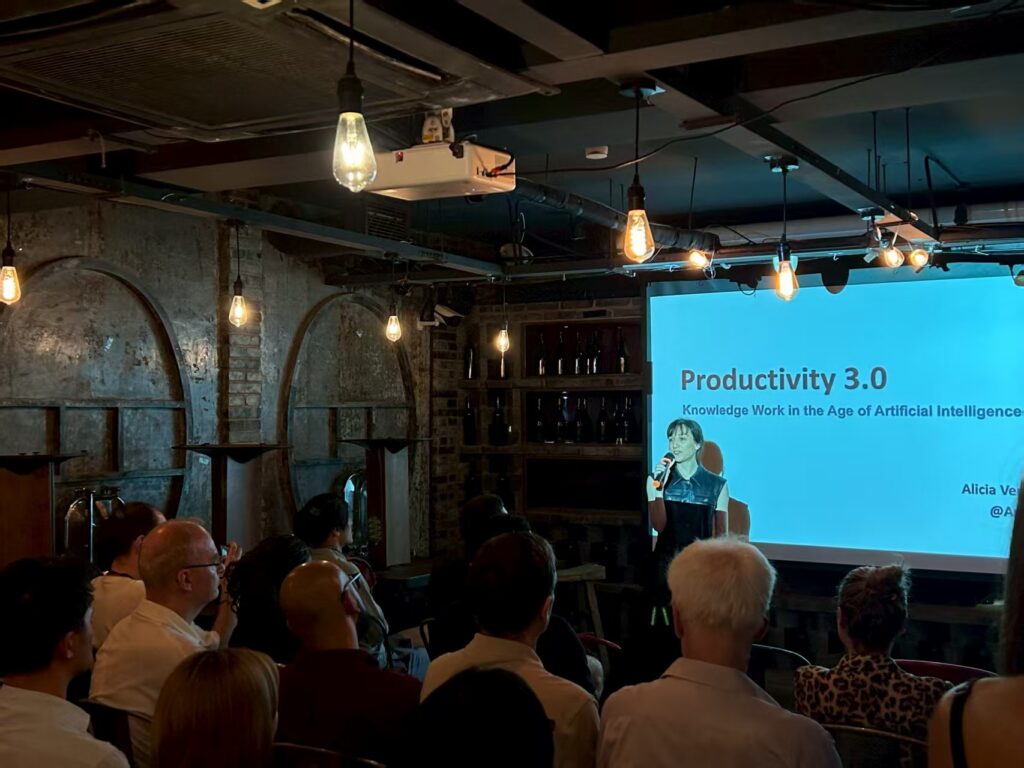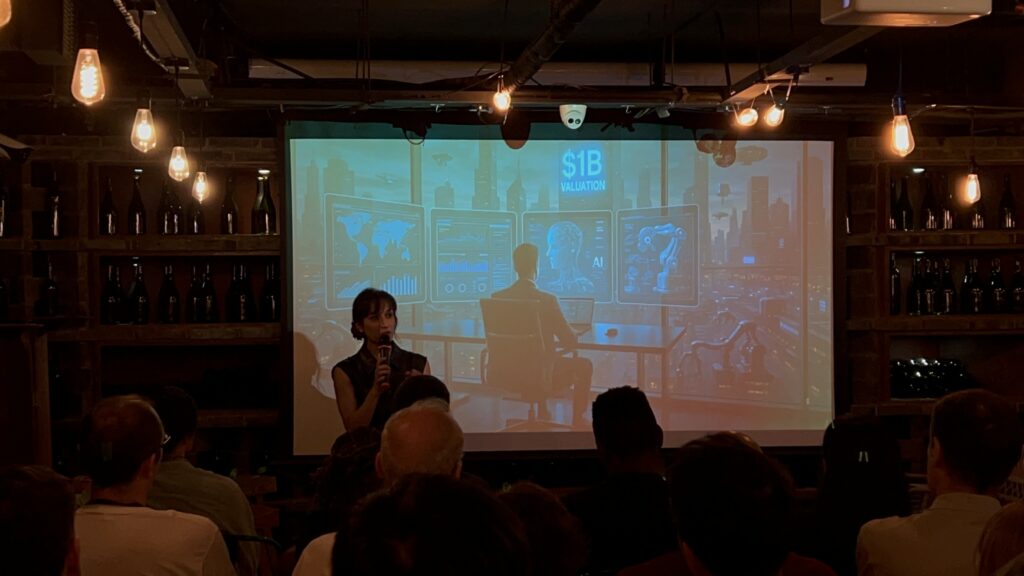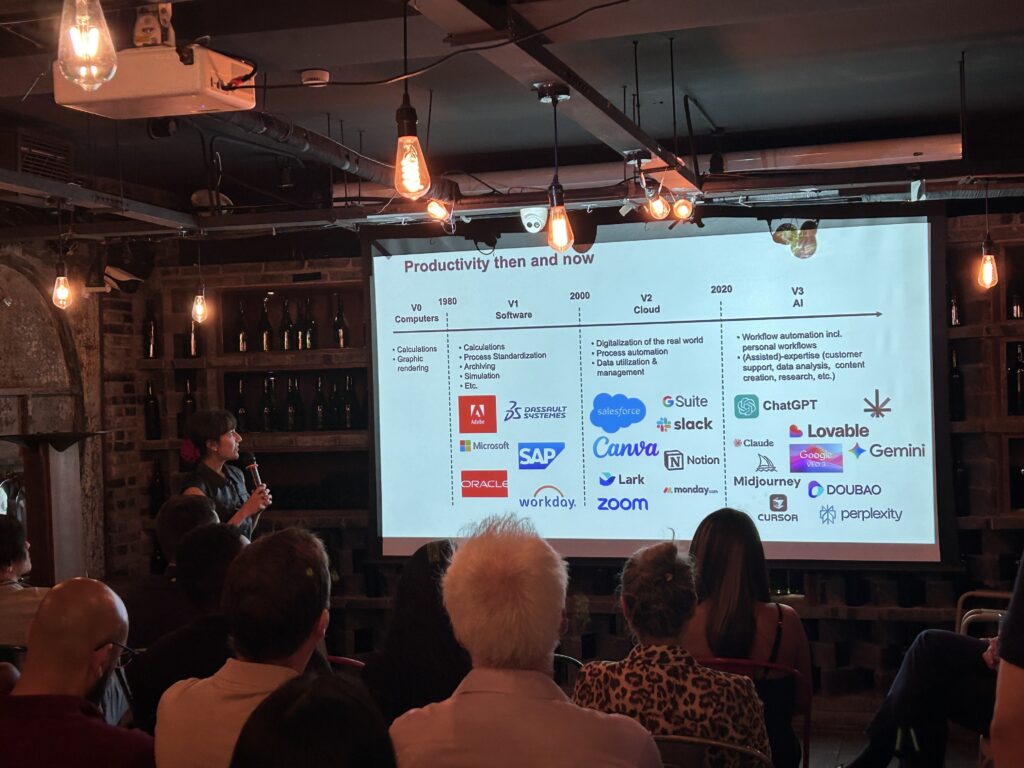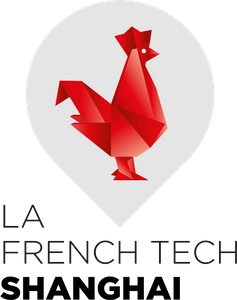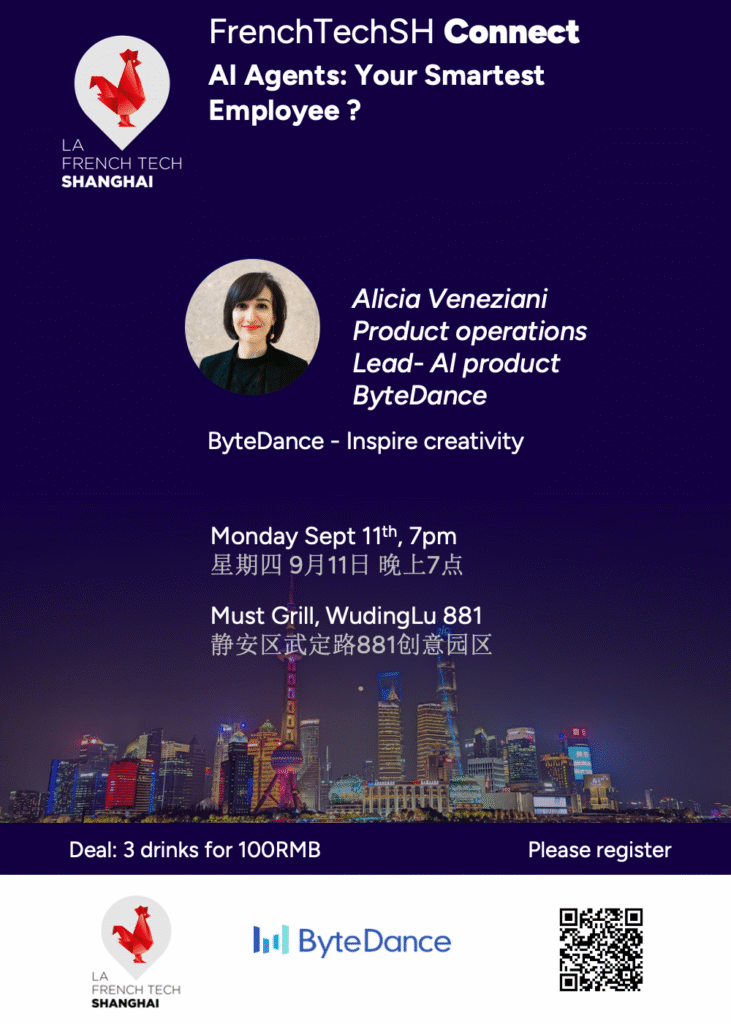
La French Tech Shanghai Reignites Community Spirit with “AI for Productivity”
Shanghai, September 11, 2025; After a quiet summer break, La French Tech Shanghai kicked off its 2025–2026 season with a thought-provoking event: AI for Productivity. Set against the warm and convivial backdrop of a French restaurant (le Must), the evening combined the trademark French Tech conviviality with a forward-looking discussion on one of today’s most pressing topics: the future of work in the age of AI.
The gathering marked more than just a rentrée; it was a moment of reunion for entrepreneurs, innovators, and executives eager to reconnect and set the tone for the months ahead.
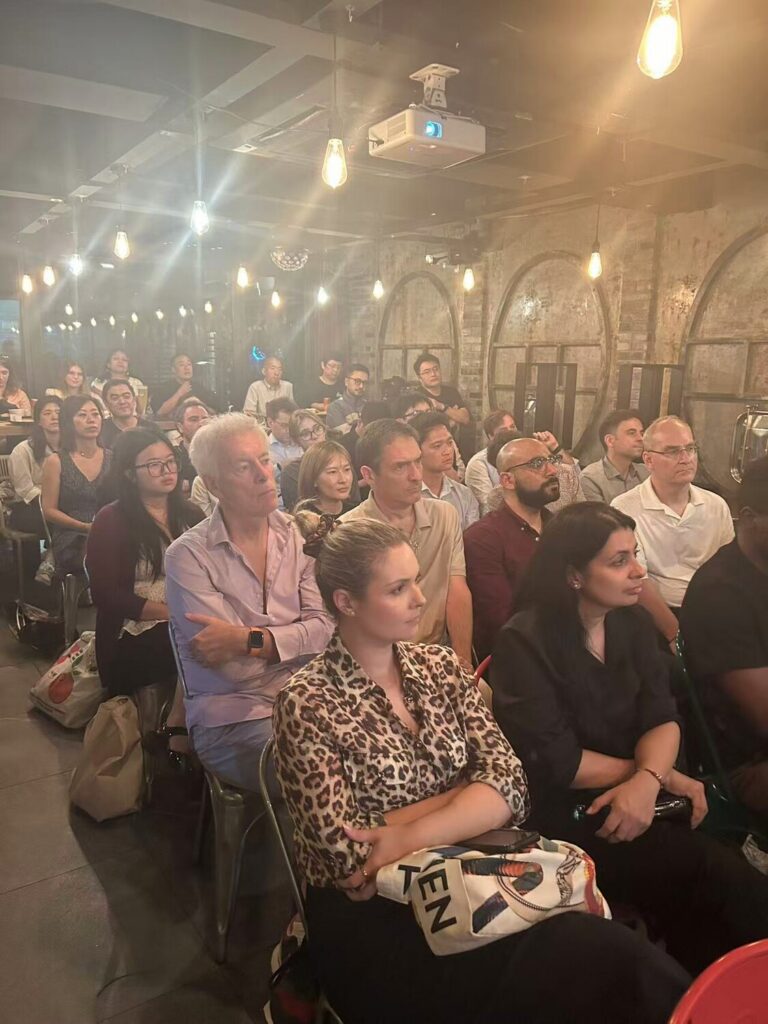
From Early Digitalization to the Age of Agents
Keynote speaker Alicia Veneziani, who has built her career at Air Liquide, Didi Chuxing, and now ByteDance, traced the historical arc of productivity gains through technology. Every two decades, she noted, a breakthrough technology has reshaped the way people work: first computers, then the rise of software, later the cloud.
“Today, we are firmly in Version 3: AI,” Veneziani explained. Unlike the chatbots that dominated early AI conversations, the new wave of generalized AI agents is redefining workflows. These agents are not limited to answering a question but can execute multi-step tasks: collecting data, contextualizing, formatting, and even sending outputs autonomously. Equipped with persistent memory, they are edging closer to making independent micro-decisions, a leap she described as “the real breakthrough that will define the next decade of productivity.”
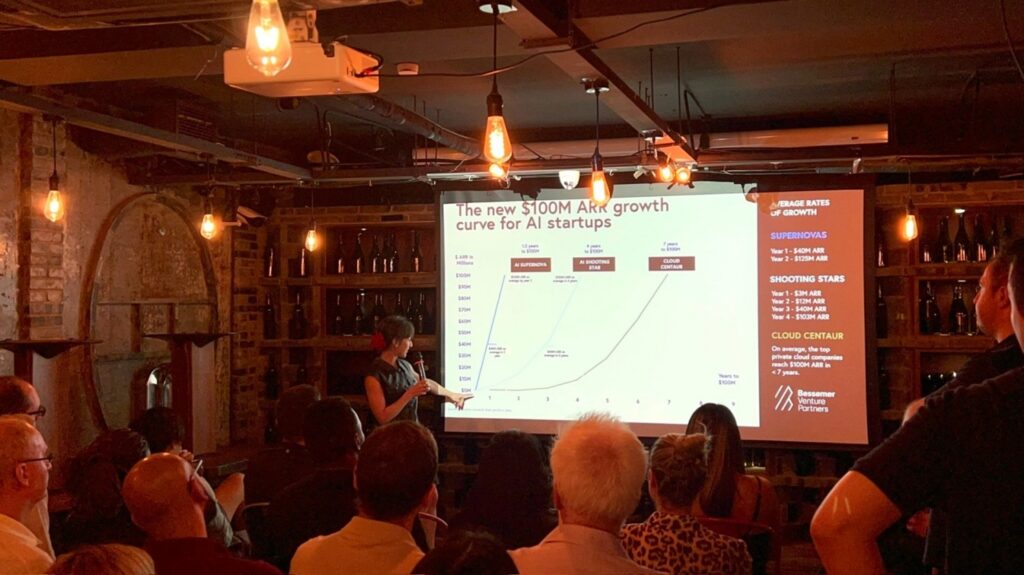
The Future of Jobs
The question everyone was asking: what will happen to our jobs? Veneziani acknowledged these worries and spoke frankly about the risks of replacement. Repetitive, rule-based tasks, from cold-calling to basic legal or financial analysis, are especially vulnerable. Yet, she warned, no role is entirely safe: the speed of progress means everyone will need to adapt.
The key is mindset. Employees who upskill and learn to collaborate with AI will become high-performers. Leaders who integrate agents into their operations will be able to scale companies with leaner teams. But those who resist change risk being left behind, not by machines directly, but by peers who know how to use them.
Her vision for the future is that of an AI-enabled workplace ecosystem: approvals, HR processes, and expenses running in “auto-mode”; knowledge AI consolidating company data and producing instant insights; communication copilots drafting presentations or emails; and personal agents optimizing daily work. As she emphasized, this is not about machines replacing people, but about redefining productivity through human-AI cooperation.
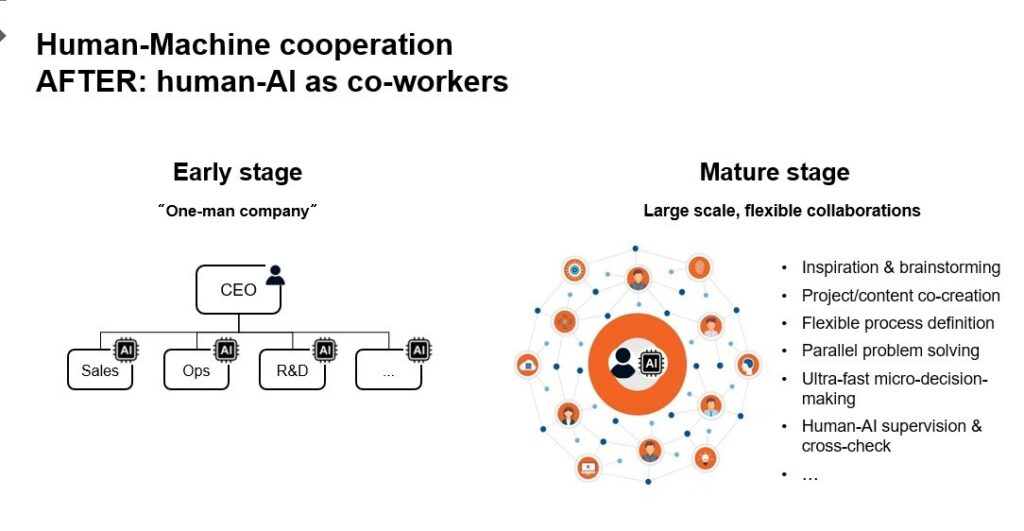
Toward a New Management Philosophy
Veneziani also argued that AI adoption demands a new management paradigm. The classic model humans handling complexity while machines handle repetition is being overturned. Instead, managers must now learn to co-create with AI: using it as a sparring partner, a creative collaborator, and even a co-author of complex projects.
To illustrate, she presented Anygen, a “Doc Agent for Deep Work” designed to consolidate corporate data, draft content, and automate document formatting. The tool, she said, showcases how AI can accelerate deep work without diluting quality or context.
A Community Engaged
Surrounded by the warmth of a French restaurant, the community reconnected after the summer break. Conversations flowed between tables, mixing strategic reflections with personal concerns. As one participant put it, “It was really helpful to get clear guidance on how to adapt our jobs in this new AI-driven world.” Another smiled and added: “The French always know how to host! I spent a very nice night.” The energy of the evening lay precisely in this blend: serious discussion about the future of work, coupled with the conviviality that defines the La French Tech spirit.

Looking Ahead
AI for Productivity was not just about technology; it was about preparing ourselves—both as individuals and as a community—for the transformations already underway. Alicia Veneziani’s message was clear: productivity has always evolved, but the pace of change today is unprecedented. The real challenge is no longer whether AI will reshape our work (it already has), but how quickly we can adapt. For those ready to embrace it, AI is not a threat, but a powerful ally.
Closing on this note of optimism, the evening left participants both informed and inspired.
A big thank to everyone who joined, contributed, and shared your perspectives. Your engagement is what makes La French Tech Shanghai thrive.
We look forward to keeping the momentum alive at our upcoming events!
— The La French Tech Shanghai Team
